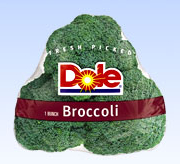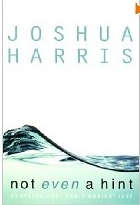 With the freshness of spring, and warmer weather in our midst, let’s enjoy His creation with a group of friends (significant others welcome)! For a quick list of fun warm-weather activities, visit our Top Ten list from June 2008.
With the freshness of spring, and warmer weather in our midst, let’s enjoy His creation with a group of friends (significant others welcome)! For a quick list of fun warm-weather activities, visit our Top Ten list from June 2008.
When participating in any outdoor activity, make sure to keep plenty of water and healthy snacks handy to help keep people from getting dehydrated or overly hungry.
The ideas
Watch an outdoor movie. Some libraries offer free outdoor movie nights during warm weather, so visit your local library to see what they offer. If a free movie isn’t an option, visit the drive-in on a family– friendly movie night (just make sure the friends you go with are mature enough to not engage in impure, ungodly activities), or have a friend bring a laptop to the park. If the place you’re viewing the movie allows, bring your own snacks and drinks to save money––each person could be in charge of one item to offer a large variety of goodies.
Visit an outdoor museum or learning center. Many museums and learning centers have outdoor spaces to enjoy, so look up the ones in your area to see if they offer group discounts or special discounted days or times (many offer half price or free admission after a certain time of day).
Spend an afternoon at a state park. More than a city park of swings and picnic tables, state parks often have lakes, horseback riding, trails, caves, canoeing, and a variety of other outdoor activities. To find a park in your area, simply type “state park,” then insert your state name into a search engine. Most state parks have websites, so you can find out their specific activities, prices, and hours to find the best park for your group.
Play a sport. Many city parks have tennis courts or basketball hoops that can be used for free, as well as open field areas for baseball or soccer. They may also have sidewalks or trails for rollerblading or bike riding. Just make sure that, no matter what sport you’re planning on participating in, you bring your own equipment and follow the park’s safety procedures!
 Go on a picnic. This can be done anywhere from your backyard, to your local park, to a state park. Everyone can bring one item to share, and if nobody in the group is up to using a grill, people can just bring sandwich fillings or chicken salad along with the other treats.
Go on a picnic. This can be done anywhere from your backyard, to your local park, to a state park. Everyone can bring one item to share, and if nobody in the group is up to using a grill, people can just bring sandwich fillings or chicken salad along with the other treats.
Watch an event at an amphitheater. This is basically like an outdoor play, and can vary widely in cost and professionalism, so ask around in your area to find what suits your tastes. If you’ve never experienced the outdoor play, this could be a real treat! If there are no amphitheaters in your area, pull the talents of you and your friends together and create your own short play on somebody’s back porch.
Host a yard sale. Clean out your room (and with your parents’ permission, other areas in the house), and have your group do the same. Place an ad in your paper at least a week in advance, then have everyone bring their stuff over a few days before the sale. They can help price and set up the sale, and place well-written signs around the neighborhood. Everyone can take turns manning the booths on sale day so nobody has to sit in the sun all day. Donate the money––and the leftover items––to a worthy cause.
Serve somebody else. Nothing brings a group together faster than doing something for someone else. Whether you mow somebody’s grass, help someone clean out their garage or shed, or grill a dinner for a family in need, you’ll feel great knowing that you’re all working together to help other people.
Clean Spring
It’s important to keep our minds and hearts pure. This can be exceptionally difficult to do while dating, but we can all choose to care for His creation (in this case, you and your date) by encouraging him to participate in clean, group activities so he can have an easier time of keeping his thoughts pure as well (Psalm 24:4-5; Hebrews 10:22-25).
By Davonne Parks
 As you engage people in a discussion of religious matters and their personal need for God, it is very important to discuss, very early in the conversation, the significance of the Bible being our only authority – our only guide, our only standard – in religion.
As you engage people in a discussion of religious matters and their personal need for God, it is very important to discuss, very early in the conversation, the significance of the Bible being our only authority – our only guide, our only standard – in religion. 3. Jesus promised the apostles inspiration. Read and study
3. Jesus promised the apostles inspiration. Read and study  “And God said, ‘See, I have given you every herb that yields seed which is on the face of all the earth, and every tree whose fruit yields seed; to you it shall be for food’” (Genesis 1:29 NKJV). All of the fruits, vegetables, meats, and grains we consume have come from God. In order to have a healthy, balanced diet, we are to eat a wide variety of His foods daily. In our efforts to be healthy,
“And God said, ‘See, I have given you every herb that yields seed which is on the face of all the earth, and every tree whose fruit yields seed; to you it shall be for food’” (Genesis 1:29 NKJV). All of the fruits, vegetables, meats, and grains we consume have come from God. In order to have a healthy, balanced diet, we are to eat a wide variety of His foods daily. In our efforts to be healthy,  “all-natural,” “free-range,” “no antibiotics used,” and “grass fed/meadow raised.” This does not mean that the product is organic. Conventional foods use waxes and preservatives to make them last longer on the shelf and appear more attractive. Organic foods do not have these waxes and preservatives, so they may spoil faster and may have odd shapes.
“all-natural,” “free-range,” “no antibiotics used,” and “grass fed/meadow raised.” This does not mean that the product is organic. Conventional foods use waxes and preservatives to make them last longer on the shelf and appear more attractive. Organic foods do not have these waxes and preservatives, so they may spoil faster and may have odd shapes.
 “God saw all that he had made, and it was very good.” Genesis 1:31
“God saw all that he had made, and it was very good.” Genesis 1:31 Very few things are needed for this project, but what is needed is important. Gather several trash bags; if you’re taking a group, make sure each person has one. Also make sure that each person has several sets of disposable gloves. We may be using our hands to serve God, but that doesn’t mean we have to get them messy with stale drinks and chewing gum––gross! The gloves are important because there are a lot of germs and disease, and we need to protect ourselves in whatever ways we can. (Taking some hand sanitizer isn’t a bad idea, either.) If you want to carry a poking stick with you to pick up paper, that’s fine, but not necessary.
Very few things are needed for this project, but what is needed is important. Gather several trash bags; if you’re taking a group, make sure each person has one. Also make sure that each person has several sets of disposable gloves. We may be using our hands to serve God, but that doesn’t mean we have to get them messy with stale drinks and chewing gum––gross! The gloves are important because there are a lot of germs and disease, and we need to protect ourselves in whatever ways we can. (Taking some hand sanitizer isn’t a bad idea, either.) If you want to carry a poking stick with you to pick up paper, that’s fine, but not necessary. If you’re like me, you love good, clean, positive music, and whenever you find it, you listen to it over and over. But, like any song you really like, it eventually gets over-played. I’m always looking for new music that a young person in Christ can enjoy. However, I found something on iTunes that’s better than any song I’ve ever heard and it’s free!
If you’re like me, you love good, clean, positive music, and whenever you find it, you listen to it over and over. But, like any song you really like, it eventually gets over-played. I’m always looking for new music that a young person in Christ can enjoy. However, I found something on iTunes that’s better than any song I’ve ever heard and it’s free! -go to
-go to  For the topic for this month I decided on something that is very personal and close to my own heart. I decided to talk about the month of April. To you this may just be another month in the year. But to me it is so much more. No, my birthday isn’t this month and there are no special holidays, yet it is still incredibly important to me. The reason I love this month so much is because it is Child Abuse Awareness Month. Every day I will put on a small blue ribbon that represents my pain and my freedom. As a little girl I was abused by my father, and that is my pain; but as a growing Christian woman I have been given my freedom. There are a lot of approaches that I could take when talking about this subject, but what I’d like to do is encourage you and show by example that good can come from evil if you ask God for direction.
For the topic for this month I decided on something that is very personal and close to my own heart. I decided to talk about the month of April. To you this may just be another month in the year. But to me it is so much more. No, my birthday isn’t this month and there are no special holidays, yet it is still incredibly important to me. The reason I love this month so much is because it is Child Abuse Awareness Month. Every day I will put on a small blue ribbon that represents my pain and my freedom. As a little girl I was abused by my father, and that is my pain; but as a growing Christian woman I have been given my freedom. There are a lot of approaches that I could take when talking about this subject, but what I’d like to do is encourage you and show by example that good can come from evil if you ask God for direction. Mama passed her strength and wisdom on to her children, and we were able to grow up and have a relationship with Christ despite our past. She taught us that we had nothing to be ashamed of and that we should never, even for a second, think that we deserved to be abused. Our past was something that was always open for discussion, not something we should hide. She helped us see that God loves us and never wanted that evil to happen to His innocent children
Mama passed her strength and wisdom on to her children, and we were able to grow up and have a relationship with Christ despite our past. She taught us that we had nothing to be ashamed of and that we should never, even for a second, think that we deserved to be abused. Our past was something that was always open for discussion, not something we should hide. She helped us see that God loves us and never wanted that evil to happen to His innocent children  I will not include the chapter in its entirety, but will instead share my favorite verses. “I sought the LORD, and He heard me, and delivered me from all my fears” (4). “Oh, taste and see that the LORD is good; blessed is the man who trusts in Him” (8). “The LORD is near to those who have a broken heart, and saves such as have a contrite spirit” (18). These three verses are just highlights of the chapter and I sincerely urge you to read the rest of this chapter. It was so amazing the think of God as an everlasting shoulder to lean on. He allows us to give Him our burdens
I will not include the chapter in its entirety, but will instead share my favorite verses. “I sought the LORD, and He heard me, and delivered me from all my fears” (4). “Oh, taste and see that the LORD is good; blessed is the man who trusts in Him” (8). “The LORD is near to those who have a broken heart, and saves such as have a contrite spirit” (18). These three verses are just highlights of the chapter and I sincerely urge you to read the rest of this chapter. It was so amazing the think of God as an everlasting shoulder to lean on. He allows us to give Him our burdens  I have a lot of guy friends. We hang out and flirt with each other a lot, even though we’re not dating. One of my friends said that I’m tempting and leading them on. I think we’re just having innocent fun. Who is right?
I have a lot of guy friends. We hang out and flirt with each other a lot, even though we’re not dating. One of my friends said that I’m tempting and leading them on. I think we’re just having innocent fun. Who is right? April is here! This is the month we see flowers bloom, feel the temperature warm up, and enjoy being outside again. We may have picnics with our church family, play ball with our friends from school, or just take a walk. This month we are focusing on, “Pierce my heart to care for Your creation.” Romans 1:20 states, “For since the creation of the world His invisible attributes, His eternal power and divine nature, have been clearly seen…” Where do we see His creations? Everywhere! In fact, a few were just mentioned: nature, our church family, and our friends. Let’s talk about some things He has created, and how we can better care for them.
April is here! This is the month we see flowers bloom, feel the temperature warm up, and enjoy being outside again. We may have picnics with our church family, play ball with our friends from school, or just take a walk. This month we are focusing on, “Pierce my heart to care for Your creation.” Romans 1:20 states, “For since the creation of the world His invisible attributes, His eternal power and divine nature, have been clearly seen…” Where do we see His creations? Everywhere! In fact, a few were just mentioned: nature, our church family, and our friends. Let’s talk about some things He has created, and how we can better care for them. Often when we think about God’s creations, we forget about people! In the latter part of
Often when we think about God’s creations, we forget about people! In the latter part of  Romans 1:20: “For since the creation of the world His invisible attributes, His eternal power and divine nature, have been clearly seen…”
Romans 1:20: “For since the creation of the world His invisible attributes, His eternal power and divine nature, have been clearly seen…” One of our more well-known Bible characters, David, enters our reading this month––a man after God’s own heart. From fighting a giant
One of our more well-known Bible characters, David, enters our reading this month––a man after God’s own heart. From fighting a giant  APR 1 Ps 36-38
APR 1 Ps 36-38
Recent Comments